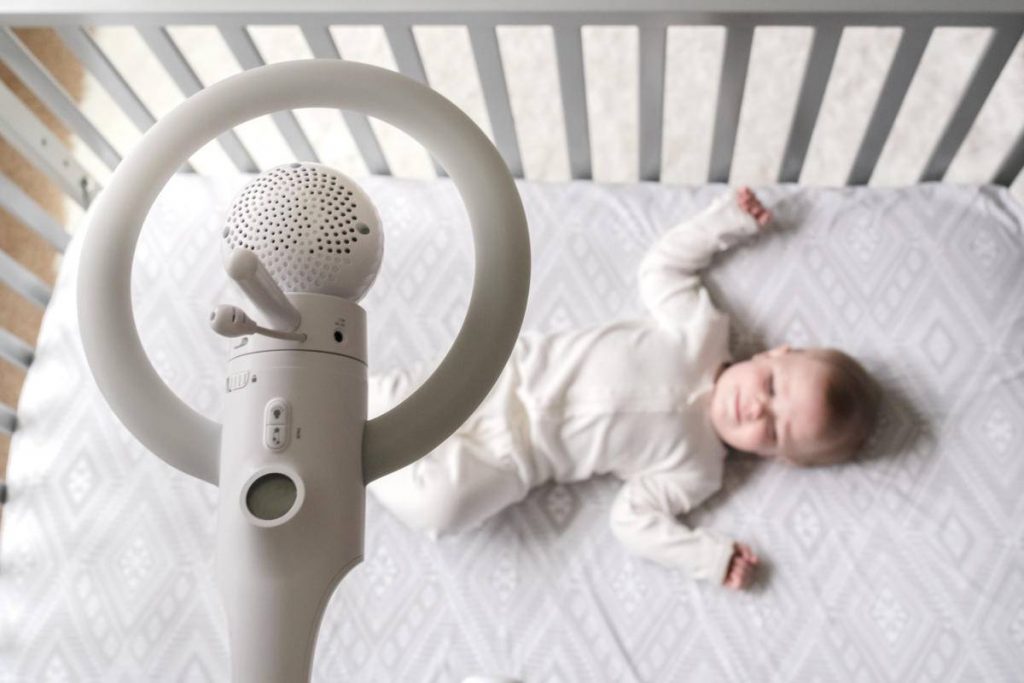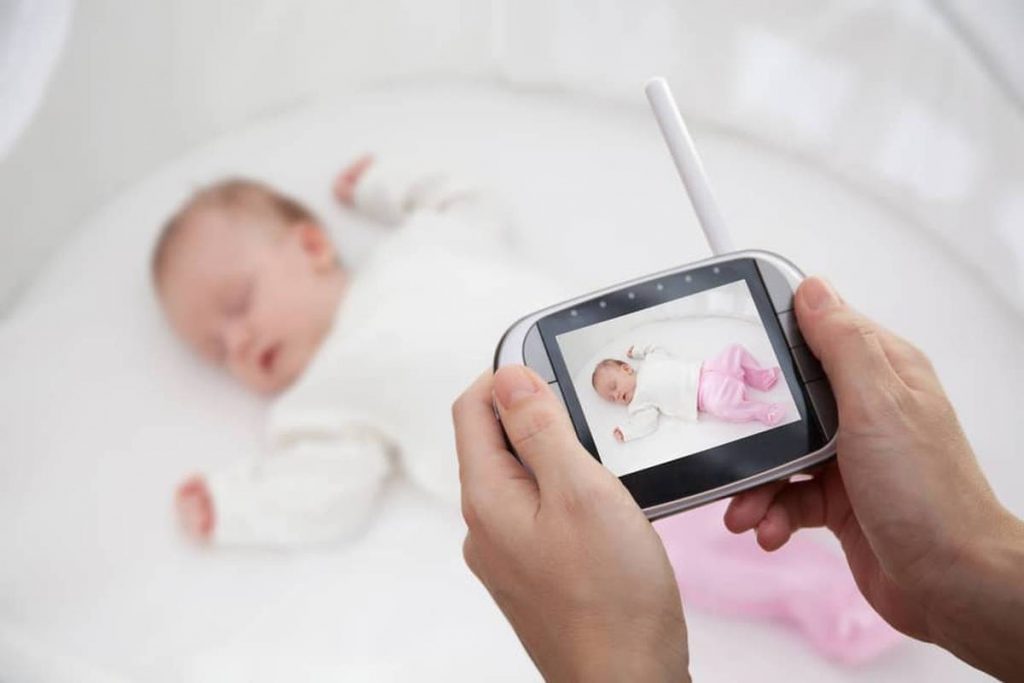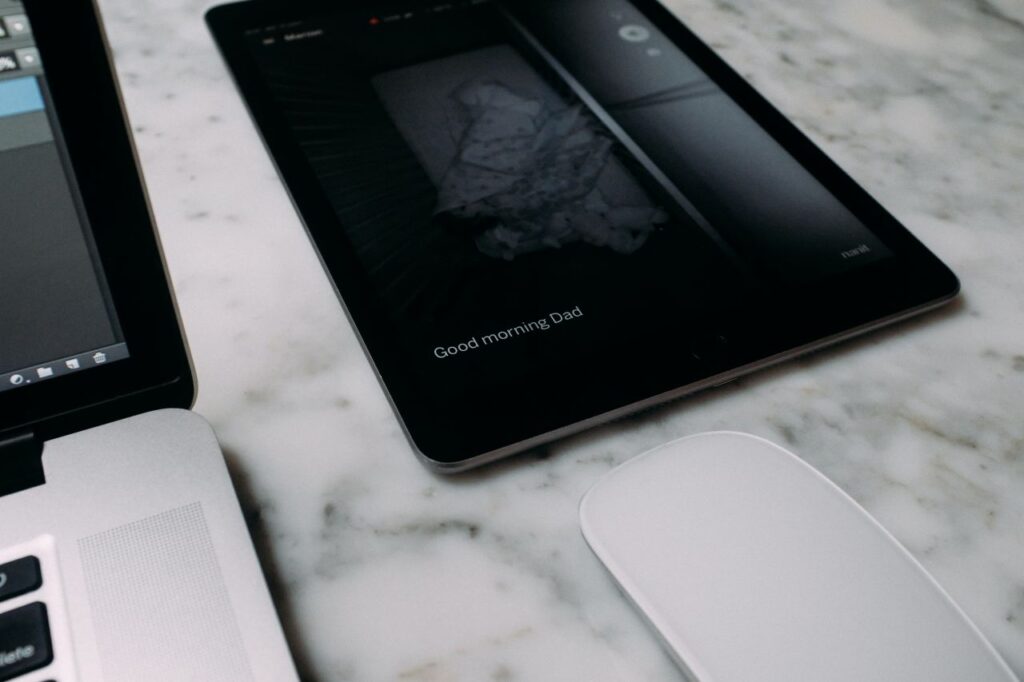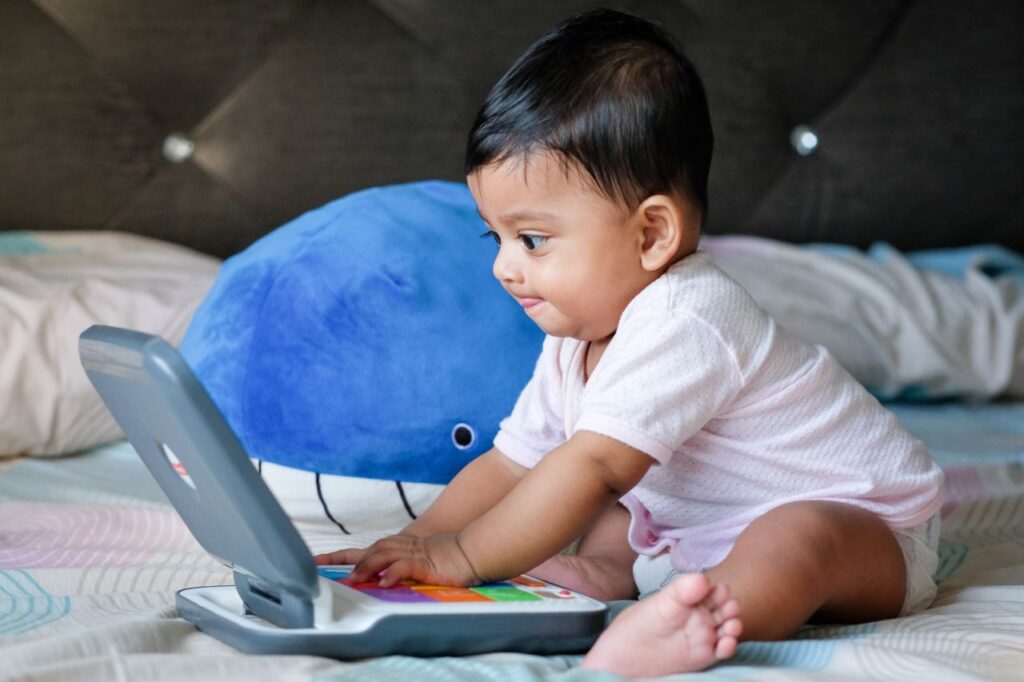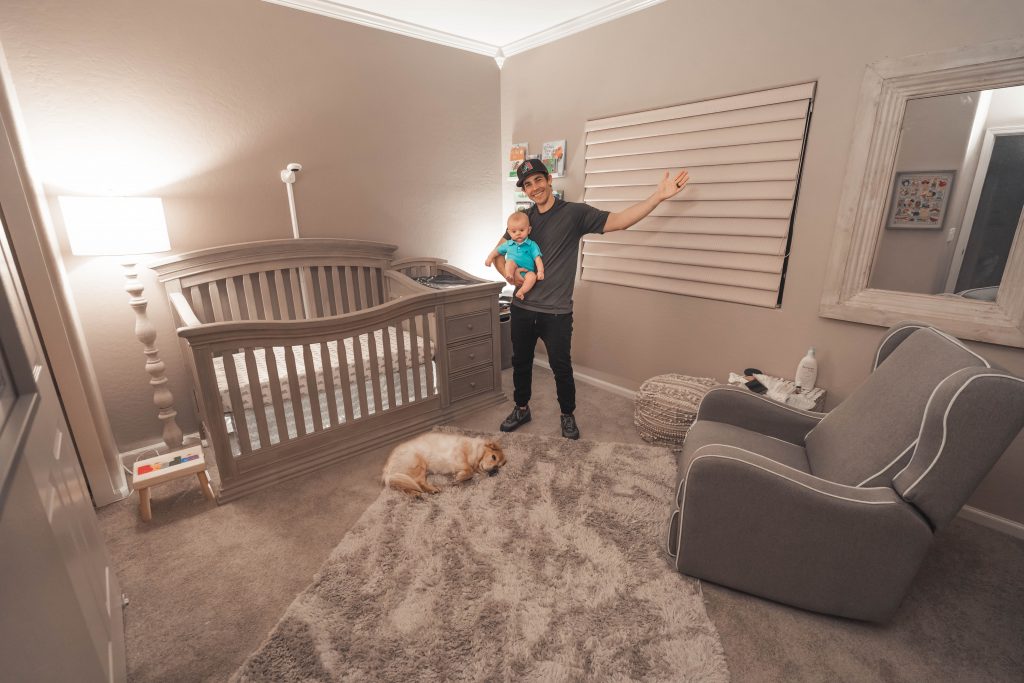If you're a new mum who's anxious about leaving your child in a separate room from you, investing in a high-quality video baby monitor can provide much-needed reassurance. Video baby monitors not only let you keep an ear out for your baby while he or she sleeps, but they also provide a method for out-of-town relatives to check in and see the tiny one.
Video baby monitors are fantastic, but you shouldn't rely on them indefinitely. Eventually, you'll need to be able to put some physical distance between you and your infant if you want to maintain a healthy, functional lifestyle that doesn't involve hovering over your kids 24 hours a day. Nonetheless, it might be challenging to ascertain when it is time to discontinue using a video baby monitor. We have compiled a list of suggested times when you can start letting your baby sleep without a video baby monitor.
Online baby product directory at My Baby Nursery
Monitors For Babies To Help In Falling Asleep
If you're a parent, one of your biggest concerns is probably getting your infant to sleep through the night. It's possible that your infant's sleep will worsen as he approaches either the four-month or eight-month sleep regression. Depending on the strategy you employ to teach him to go to sleep without your support, the baby monitor might be a useful tool during sleep training.
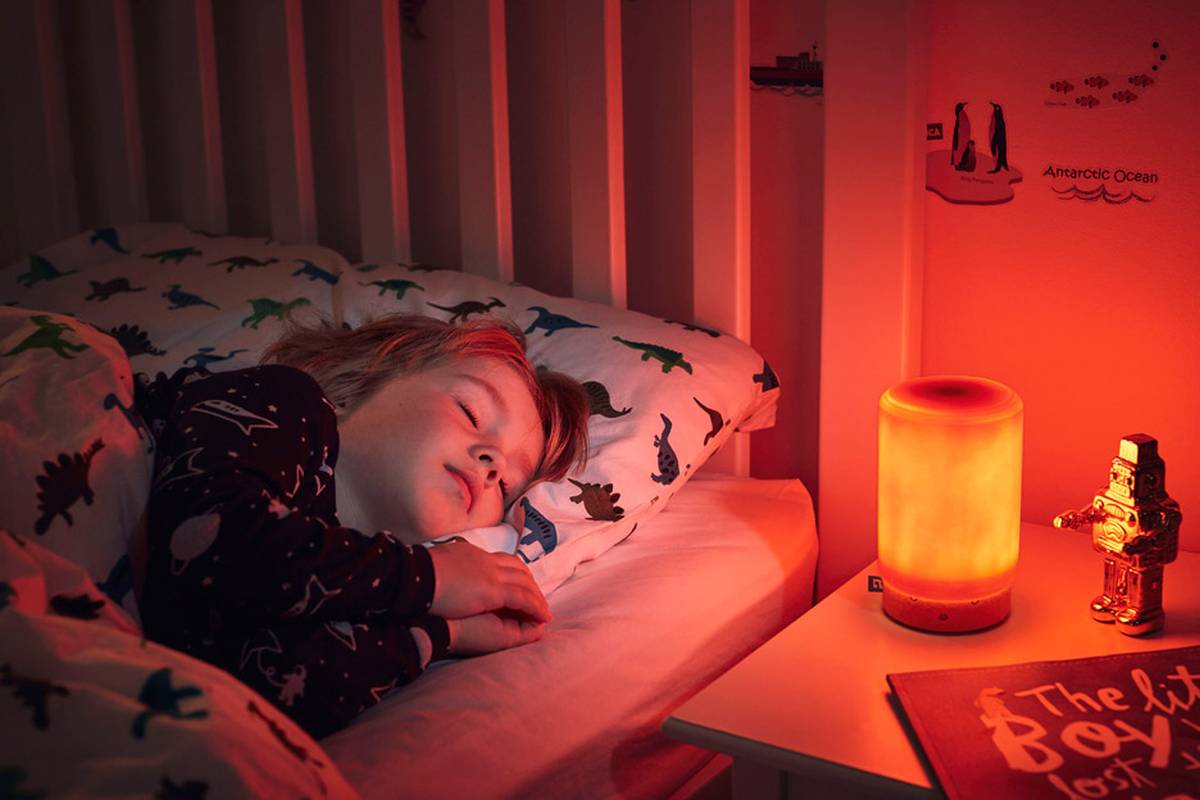
Baby Monitoring And Assisting Baby In Sleeping
Some individuals consider using a baby monitor to be a sort of "Helicopter Parenting," which can make you miserable. Overparenting, or "helicoptering," occurs when a parent takes too much responsibility for their child. Still others argue that baby monitors are a waste of money and an abuse of new parents' trust.
Baby monitors can be helpful in many ways, but they can be a hindrance to sleep training because you can hear every cough, cry, and whimper. Hearing your child's cries amplified on a monitor could cause your heart rate to skyrocket and lead you to believe he or she is in grave danger. A closer eye on your baby's respiration and activity may be warranted if he has a medical issue. However, for the typical healthy infant, it is not necessary to listen to every sound the infant makes. That may make it harder for you to get your infant to sleep through the night. It's quite natural and expected for a baby to cry and fuss a little bit between sleep cycles. If you rush in, you can even wake up your sleeping infant.
The Use Of Baby Monitors
Having said that, there are times when a baby monitor is a lifesaver. It's simple to check the monitor if your kid wakes up during the night. Is she crying out, trying to locate her pacifier, and then falling back to sleep? Is your infant at the foot of the cot because of reflux and the elevation of one side of the bed? Having a video monitor might dispel your fears that something dreadful has taken place inside or give you concrete evidence to support your decision to enter or not. Maybe that's teaching your child more independence than if you were checking on her constantly.
Check out our range of safety baby monitors here.
When Should You Stop Using Video Baby Monitors?
Babies Under The Age Of Six Months
Many paediatricians advocate utilising a video baby monitor after the baby reaches the six-month mark so that you can keep an eye on them in case anything seems out of the ordinary. For instance, if your newborn won't stop crying or your infant rolls over onto their stomach.
You can check on your baby's breathing without entering the room and maybe waking him or her up with a video baby monitor. If you have to go to work or go out of town and leave your kid with a babysitter, you can use them to keep an eye on things back at home. The baby's grandparents and other relatives can check on from wherever they happen to be, whether that's another state or another city.
Babies Over The Age Of 6 Months
Your child is more likely to be sleeping through the night after he or she reaches the six-month mark. Due to this, less frequent use of a video baby monitor is required. You can get around this by turning down the volume on your video baby monitor, which will allow you to hear just really loud or scary sounds rather than, say, every creak and breath. In other words, the less you rely on a video baby monitor, the more stable your child's sleep schedule is.
After Your Baby Turns One Year Old, Should You Use A Video Baby Monitor?
One of the most hotly contested topics in the world of parenting is the question of whether or not to continue using a video baby monitor once your child reaches the age of one. After the first year, many people advise against using a video baby monitor because they worry that the parents would grow too hooked to constantly monitoring their child. Sometimes it's the parent who has a harder time encouraging independence than the youngster. Some parents also find it intrusive because it can be difficult to know who is in the nursery with their child. One typical criticism levelled towards video baby monitors is that they prevent parents from receiving the rest that they so need.
On the other hand, many parents insist on utilising a video baby monitor for at least the first two years of their child's life, citing the need to keep a close check on their developing toddler as they learn to crawl, walk, and roll over from their back to their stomach. Despite the many safeguards built into cribs, your child will eventually figure out how to move about in it and perhaps even climb out on their own. If you have a baby video monitor, you can stop this from happening and protect your child from injury.
These Are The Main Reasons Why Parents Are Quitting Monitoring.
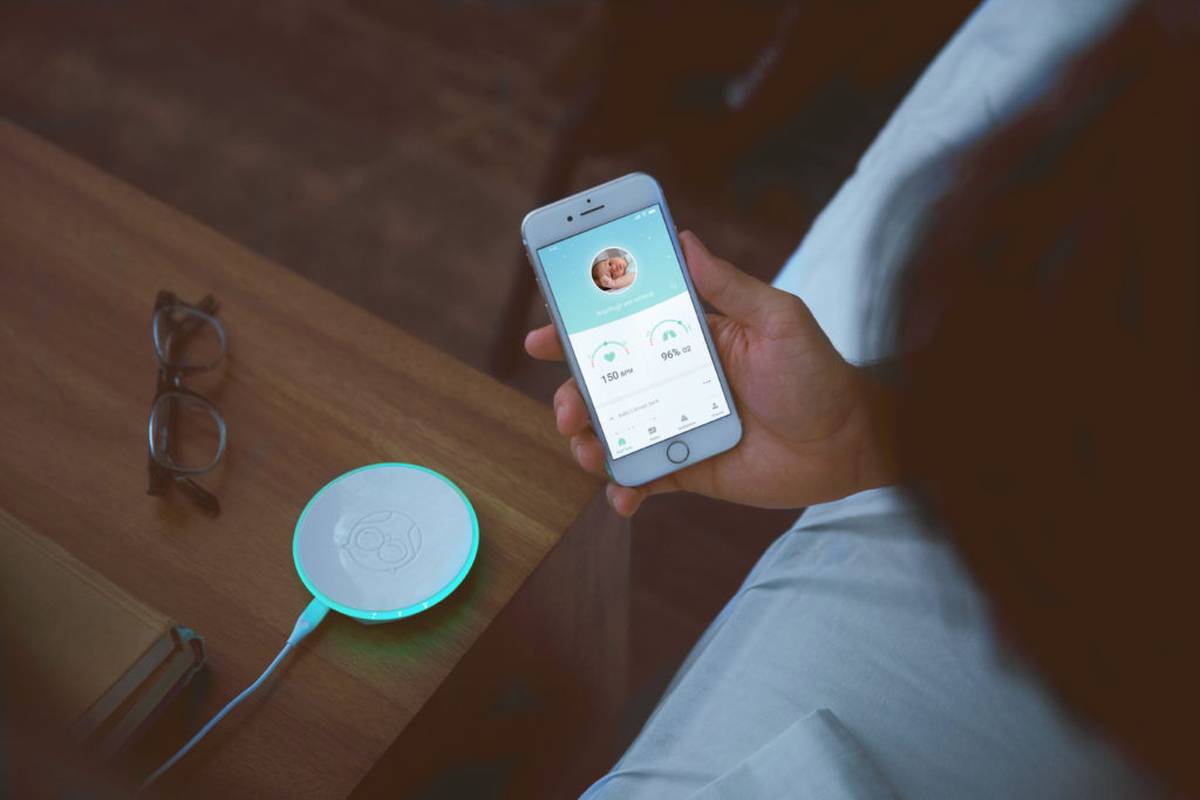
Not All Noises Require Your Attention.
Babies typically make a lot of noise as they sleep. Normal sounds can include anything from breathing to snorting to sneezing to coughing to wheezing to hiccuping and beyond.
The only sound that will catch your attention after six months is weeping. The need to shed tears is also quite normal. There was a time when my daughter would make what sounds like a cry. At first, we run into her room at the sound of the door, but later We realised she was just dreaming.
It's at this point that we no longer need to use a baby monitor during the night. We refrained from entering her room immediately after hearing the mysterious sound for fear of disturbing her sleep. It had been difficult enough to get her to sleep that We didn't want to wake her up only to reassure her.
A video baby monitor equipped with night vision is helpful if you suffer from anxiety but yet desire peace of mind. If you're worried about your sleeping kid, you can see if they're still there without entering the room. You power up the TV screen.
Check out our post on How can I improve my baby sleep?
Your Bedrooms Are Near Each Other.
When the kids are crying, You can usually hear them even through a wall. You even hear their coughs. You won't need a baby monitor if your child's voice can be heard in the next room.
The Use Of A Baby Monitor Can Cause Anxiety And Sleep Problems.
After five months of using a baby monitor, You find myself fixated on every sound it makes. You will double-check to see if the baby monitor is operational.
There was a sharp increase in worry. For some reason, my sleep became more restless and less restorative. You felt exhausted and a wave of melancholy was approaching. We resolved this problem by ditching the baby monitor and having faith that that child would be loud enough to wake me if he needed assistance.
The nightmares have subsided, but you still wake up anywhere from two to five times a night. Because they were trained to do so, They believe that is the reason.
If you really must keep using a monitor, perhaps you might at least try to shift it further away from your bed each night. Put the PowerPoint presentation on the nightstand first, then on the dresser, and finally outside the bedroom.
Get rid of the baby monitor if you find that it is causing more problems than it is solving.
Addiction To Watching
Having a video monitor to check on your child is a great convenience. It allows you to check on your child's well-being without waking him up. After a few months, however, it gets addictive, and you can't help but check in on your kid periodically.
Peek in on your sweet sleeping baby every 15 minutes; it's easy to do and won't wake them.
You start to open the screen, as if scrolling through your Facebook feed, to see whether your child's bedroom has anything new to report.
If this sounds similar, putting away the baby monitor is probably for the best.
You Will Turn Into A Spy
Seeing kids have fun together as a group, whether with siblings or other children, is irresistibly adorable. Knowing how our child acts when we're not around is a priceless gift.
Parents who utilise a video baby monitor are significantly more likely to be observant for this reason. Parents that upgrade to a video baby monitor sometimes end up using it for far longer than they would have with an audio monitor simply because they can't get enough of watching their child grow up before their eyes. It's a reflection of how well we're doing as parents.
When you play the espionage game, you risk getting caught quickly.
Your child may change his behaviour if he senses you are keeping an eye on him. Perhaps the events unfolding in your neighbourhood differ from what you see.
We hope that kid doesn't grow up to be someone who puts on a different persona for the camera. We hope that kid doesn't grow up to be an egotistical brat who thinks the world revolves around him.
Everyone needs a safe space to call their own. And You know there are things occuring in there that We don't want to see, since it's my kid's room.
These Are The Reasons Why You Should Keep A Baby Monitor.
Toddler Sleep Training
When it came to getting the children to bed at night, We often felt like complete idiots. That means, there were times when we could make faint sounds, like their feet shuffling around in bed.
We had to rely on my baby monitor to find out if they were resting or awake and playing.
The baby monitor was quickly reactivated after my son graduated to a big boy bed. Now We know that we put him to bed because it's best for him, not just to get him to stop playing. We don't know if he grasped the idea of sleep or if he was just paranoid about being watched all the time. However, the strategy is effective.
Do You Live In A Big House?
If a parent is able to hear their child from bed, they are less likely to use a baby monitor. On the other hand, many families with multiple children who reside in a large home will continue to utilise a baby monitor.
Even if your family lives on different floors, this holds true. When the child sleeps in his bedroom on the second floor, it can be challenging to get his attention.
If you have trouble waking up and may miss your child's cries for aid, a baby monitor is a good idea. Or whenever the noise level of your child is high enough to wake you.
Do Your Child Have Nightmares?
Up until she turned five, my daughter regularly experienced nightmares that prevented her from returning to sleep unless We reassured her. We can only hope that the rooms were close enough for me to hear her clearly. If a child cries for help and no one comes because their parents' rooms are too far apart, it can be a scary experience.
Is Your Child Sleepwalking?
Sleepwalking might be risky depending on the layout of your home. Your child may not wake you up if he or she is sleepwalking. The baby monitor may be your sole means of knowing if he wanders off.
Does Your Child Have A Health Problem?
When their child has a medical problem, many parents will still utilise a baby monitor. It's a sensible way to make sure they're always aware of their kid's whereabouts and ready to aid out if necessary.
Do Baby Monitors Really Matter?
Toddlers' proper sleep cycle development is the primary motivation for parents to temporarily separate from their young children.
The child may develop a need on being held or carried at all times, especially when they are sleeping, leading them to fall asleep exclusively when held or carried.
When a child is constantly in their parent's arms, they become accustomed to being awakened at the exact moment they are put to bed.
Both the child and the mother would benefit less from receiving such attention. It's hard to get anything done when a little child is always demanding your attention unless you have some help.
Additionally, the child's sleep cycle is disrupted because of the multiple times you have to put them down or because you have to take them somewhere noisy.
Studies also show that a youngster who is carried frequently is more likely to have sleep disorders, which could persist into adulthood.
Some professionals in the field of early language acquisition also recommend keeping an awake newborn alone with a crib for a period of time between the ages of one and two years old in order to encourage the young child's development of language skills through crib talk. This may help explain why some kids pick up linguistic skills before others.
However, it is natural for parents to worry for their children, and this is where baby monitors come in handy. If you want to make sure your kid is okay when they're alone, but don't want to intrude too much, a baby monitor is a great option.
Some parents believe that using a baby monitor throughout an infant's first nine months can help protect them from SIDS. This is because it is usually very obvious to parents when their infant needs assistance, and they can act accordingly.
This depends greatly on the person. Having a monitor for your baby in the first few weeks and months after he or she goes into his own room, especially if that room is down the hall or on a separate level, can provide you with peace of mind that your child is safe while sleeping. However, babies often wake their parents up with their noise. If you're the type of parent who gets up at every little noise their baby makes, you should either stop using the monitor once your baby starts sleeping through the night (typically around six months) or reduce the level down so you only hear the baby if he's truly angry and crying. If your baby is having trouble sleeping through the night, you shouldn't rush to his side every time he makes a sound. This will just disrupt his sleep and undermine your efforts to teach him to sleep independently. A baby monitor isn't necessary until your child is older, but some parents find comfort in hearing their child breathe or are heavy sleepers who could miss their child's screams otherwise. When a child is ready for a big-kid bed and can get to you without the monitor, some mothers feel it's only natural to stop using it.
The decision of when to quit using a baby video monitor is ultimately a personal one. While some families don't feel comfortable without a monitor, others wait to start using one until their child is sleeping in a regular bed instead of a crib. You and your partner should weigh the benefits and drawbacks of utilising a video baby monitor before making a final decision.
FAQs About Baby Monitor
The average age at which experts advise parents to cease using a baby monitor is four. There were two main groups of justifications:
1) They know they're being observed, and
2) They want to be watched. The transition to sleeping in their bed was successful.
Baby units could be out of range. Close the distance between the parent and infant units (not less than 1 meter). Your baby monitor could experience interference from other electronic devices or wireless technologies. A baby monitor should be installed as far away from electronic gadgets as feasible.
While the CDC has yet to settle on a cutoff age for baby monitor use, there should be. Somewhere between the ages of three and five is when a child reaches a critical point of development where they can verbalise discomfort, establish boundaries, and feel comfortable sharing personal information.
Practically any baby monitor may be hacked. However, the difficulty or ease with which a hacker can achieve this depends heavily on the sort of monitor you use. Radio spies exchange information on a narrow band of frequencies at short to medium distances.
The monitor can serve as a gentle wake-up call when it's time for those midnight feedings. However, you can stop using the monitor at night once your baby is three or four months old. Babies alternate between deep and light sleep around the four-month mark. In addition, babies often begin to sleep through the night around this time.
Conclusion
Baby video monitors are great, but you shouldn't rely on them alone. One may say that using a baby monitor is a form of "Helicopter Parenting" on the part of the parent who uses it. Your baby may have a worsening sleep as he reaches the four-month or eight-month sleep regression. After the six-month milestone, many paediatricians recommend using a video baby monitor. If your child wakes up in the middle of the night, you may quickly and easily check the monitor.
Use them to check in on the house while you're away, whether it's for work or to leave the kid with a babysitter. Some parents may use a video baby monitor for the first two years of their child's life. They point to the importance of keeping a careful check on their tot as they learn to crawl, walk, and turn over from their back to their stomach as reasons for doing so. With a video baby monitor, you can see how your sleeping infant is doing without disturbing him. However, after a few months, it becomes addictive, and you can't help but check in on your kid from time to time.
It should be removed if you discover that the monitor is causing more issues than resolving them. Having a baby monitor is smart if you have difficulties waking up and could miss your child's cry for help. If your child is sleepwalking, they might not wake you up. If he escapes, the baby monitor could be your only way of finding him. The primary reason parents temporarily detach from their young children is to aid in forming the toddler's sleep pattern.
Crib talk is a form of early language development advocated by some experts who suggest leaving an awake infant in a crib for an extended period of time between the ages of one and two. Stop using the monitor or turn it down if you're the type of parent who jumps at every sound your baby makes. Some mothers believe it's only natural to cease using the monitor once their child is ready for a big-kid bed and can get to them without the monitor.
Content Summary
- If you're a new mum who's anxious about leaving your child in a separate room from you, investing in a high-quality video baby monitor can provide much-needed reassurance.
- Nonetheless, it might be challenging to determine when to discontinue using a video baby monitor.
- We have compiled a list of suggested times when you can start letting your baby sleep without a video baby monitor.
- Depending on your strategy to teach him to go to sleep without your support, the baby monitor might be useful during sleep training.
- Baby monitors can be helpful in many ways, but they can be a hindrance to sleep training because you can hear every cough, cry, and whimper.
- That may make it harder for you to get your infant to sleep through the night.
- There are times when a baby monitor is a lifesaver.
- It's simple to check the monitor if your kid wakes up during the night.
- Many paediatricians advocate utilising a video baby monitor after the baby reaches the six-month mark so that you can keep an eye on them in case anything seems out of the ordinary.
- Your child is more likely to sleep through the night after reaching the six-month mark.
- Due to this, less frequent use of a video baby monitor is required.
- In other words, the less you rely on a video baby monitor, the more stable your child's sleep schedule is.
- One of the most hotly contested topics in parenting is whether or not to continue using a video baby monitor once your child reaches the age of one.
- On the other hand, many parents insist on utilising a video baby monitor for at least the first two years of their child's life, citing the need to keep a close check on their developing toddler as they learn to crawl, walk, and roll over from their back to their stomach.
- If you have a baby video monitor, you can stop this from happening and protect your child from injury.
- At this point, we no longer need to use a baby monitor during the night.
- A video baby monitor equipped with night vision is helpful if you suffer from anxiety yet desire peace of mind.
- You won't need a baby monitor if your child's voice can be heard in the next room.
- The nightmares have subsided, but you still wake up anywhere from two to five times a night.
- Having a video monitor to check on your child is a great convenience.
- It allows you to check your child's well-being without waking him up.
- If this sounds similar, putting away the baby monitor is the best.
- When it came to getting the children to bed at night, We often felt like complete idiots.
- We had to rely on my baby monitor to find out if they were resting or awake and playing.
- If a parent can hear their child from bed, they are less likely to use a baby monitor.
- A baby monitor is a good idea if you have trouble waking up and may miss your child's cries for aid.
- Sleepwalking might be risky, depending on the layout of your home.
- The baby monitor may be your sole means of knowing if he wanders off.
- Toddlers' proper sleep cycle development is the primary motivation for parents to separate from their young children temporarily.
- The child may develop a need to be held or carried at all times, especially when they are sleeping, leading them to fall asleep exclusively when held or carried.
- Additionally, the child's sleep cycle is disrupted because of the multiple times you have to put them down or because you have to take them somewhere noisy.
- Some professionals in the field of early language acquisition also recommend keeping an awake newborn alone with a crib for a period of time between the ages of one and two years old to encourage the young child's development of language skills through crib talk.
- A baby monitor is a great option if you want to ensure your kid is okay when alone but don't want to intrude too much.
- Some parents believe that using a baby monitor throughout an infant's first nine months can help protect them from SIDS.
- Having a monitor for your baby in the first few weeks and months after they go into his room, especially if that room is down the hall or on an individual level, can provide you with peace of mind that your child is safe while sleeping.
- However, babies often wake their parents up with their noise.
- If you're the type of parent who gets up at every little noise their baby makes, you should either stop using the monitor once your baby starts sleeping through the night (typically around six months) or reduce the level down, so you only hear the baby if he's truly angry and crying.
- If your baby is having trouble sleeping through the night, you shouldn't rush to his side every time he makes a sound.
- The decision of when to quit using a baby video monitor is ultimately a personal one.
- You and your partner should weigh the benefits and drawbacks of utilising a video baby monitor before making a final decision.
